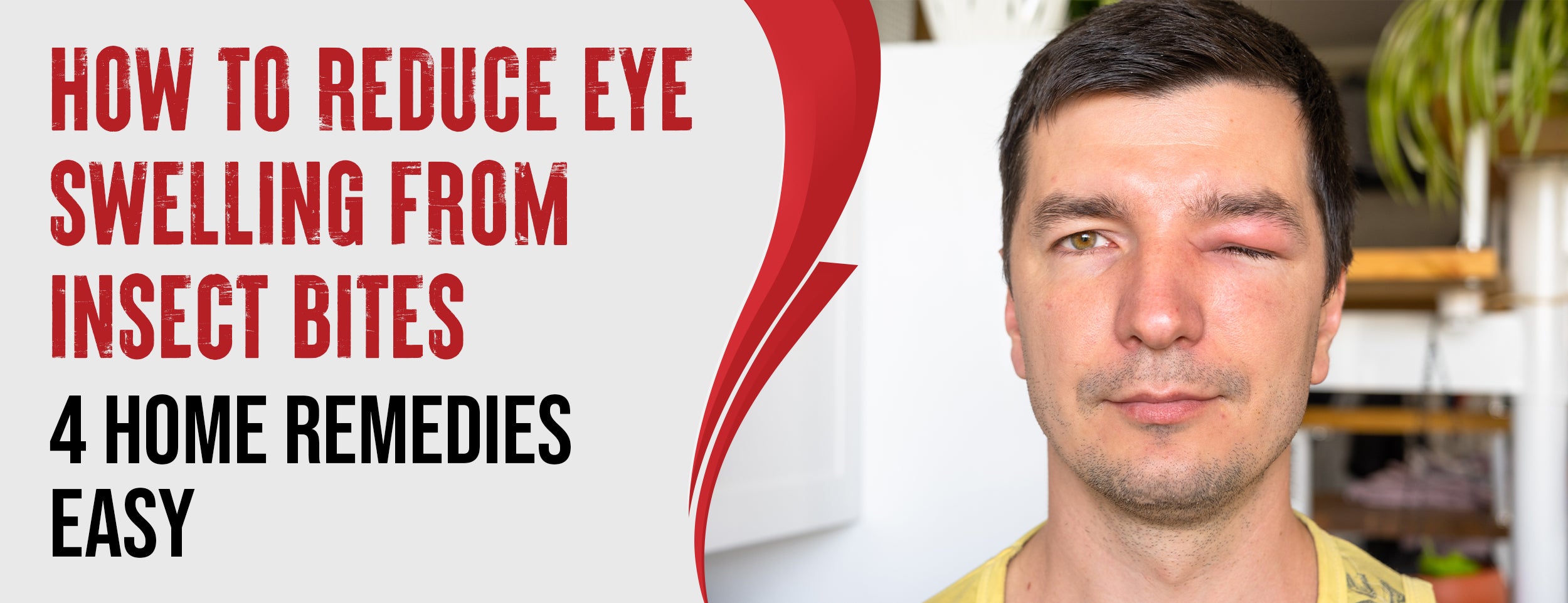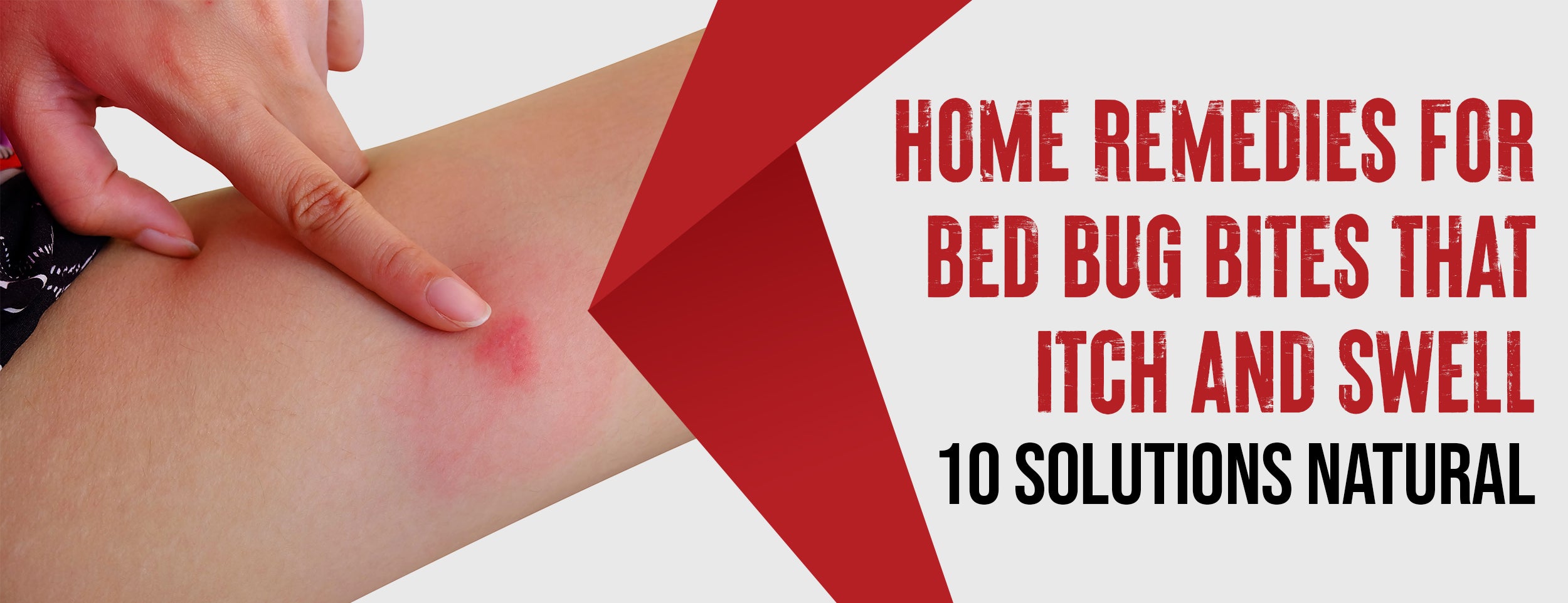Bites from insects can cause more than just pain. In some cases, an affected person may even faint from the pain. Knowing how to properly treat insect bites is important to minimize the risk of complications and reduce discomfort.
Take an over-the-counter painkiller like acetaminophen or ibuprofen to treat painful insect bites. For itching, use an ice pack or an anti-itch cream like hydrocortisone. Add an ice pack and cream directly to the bite to reduce swelling.
This blog post will explore effective ways to treat insect bites and prevent further discomfort.
How To Treat Painful Insect Bites: 8 Procedures

Insect bites are a common occurrence that can cause discomfort and pain. If left untreated, insect bites can lead to more severe conditions like infection or swelling. Fortunately, there are several effective methods for treating painful insect bites. Here are a few options to consider:
Apply a Cold Compress
When treating painful insect bites, it is recommended to apply a cold compress for 15 to 20 minutes and repeat as needed. This helps reduce pain and swelling. The compress should be filled with ice or kept in the freezer and changed when necessary to maintain the same level of coldness. Simple pain relief methods such as paracetamol can also be used. Prompt application of a cold compress can provide relief and promote faster healing.
Do Not Scratch The Area
Do not scratch the affected area, as it can lead to further irritation and increase the risk of infection. Scratching can also introduce bacteria into the bite wound, causing it to become infected. Instead, treat a cold compress or apply a topical cream that contains ingredients such as hydrocortisone or calamine to soothe the itching.
Keeping the area clean and dry is also essential for proper wound healing. Seek medical attention if the bite area becomes increasingly red, swollen, or painful.

Apply Cold Water or Ice To The Affected Area
An effective treatment for insect bites is to apply cold water or ice to the area. The cold temperature constricts the blood vessels in the area, helping to reduce swelling and inflammation.
It can also provide immediate relief from pain and itching by numbing the skin. It is important to avoid placing ice directly on the skin as it can cause frostbite. Instead, wrap the ice or cold compress in a cloth or towel before applying it to the affected area.
Wash The Affected Area With Soap And Water
When treating painful insect bites, wash the area with soap and water first. This helps remove any dirt or toxins that may be present and prevent infection. The area should be washed gently to prevent further irritation. Using warm water instead of hot water can also make it easier to treat discomfort and itching. Moreover, rinse the soap thoroughly to prevent any residue from irritating the affected area. Following these steps can promote quick healing and reduce the risk of complications.
Topical Creams

Topical creams are a popular and effective way to treat painful insect bites. They deliver medication directly to the affected area, providing quick relief from itching, swelling, and pain. Topical creams for insect bites often contain hydrocortisone, which reduces inflammation, and antihistamines, which relieve itching.The cream has different strengths, with 0.5% and 1% being the most common.
Baking Soda Paste
Baking soda paste can alleviate the discomfort caused by insect bites due to its anti-inflammatory and antiseptic properties. Mixing one tablespoon of baking soda with water can create a soothing paste. Apply the paste to the affected area and leave it for 10 minutes before rinsing it.
Baking soda is a natural remedy for relieving itching and reducing pain and swelling from bug bites. Its ability to neutralize acidic toxins makes it a beneficial treatment for insect bites.
Calamine Lotion
Calamine lotion is a treated for topical medication that relieves itchy and painful insect bites. Its active ingredient, zinc oxide, has anti-inflammatory properties that soothe the skin. The lotion helps dry out the affected area, preventing the bite from infecting.
Calamine lotion should be applied generously to the bite, allowing it to dry before covering with clothing. Apply the lotion several times daily until the symptoms disappear for maximum relief.
Tea Tree Oil And Lavender Oil As Natural Anti-Inflammatory Agents

Natural anti-inflammatory agents such as tea tree and lavender oil can treat insect bites. Tea tree oil's powerful antibacterial properties reduce the likelihood of infection and soothe irritated skin. Meanwhile, lavender oil is known for its pain-relieving properties, which can ease the itchiness and discomfort caused by bug bites.
These oils are a potent combination in treating painful insect bites. These natural remedies provide quick relief for bug bites and are safe and effective alternatives to traditional medications.

When to Seek Medical Attention:
After an insect bite, seek medical attention if you have difficulty breathing, swelling, or a fever. Medical treatment may be needed if insect bites cause severe allergic reactions or infections.
Indications For Seeking Medical Attention:
Insect bites can often be uncomfortable and mildly irritating, but sometimes they can cause significant pain, swelling, and discomfort. If you experience any of the following symptoms, you should seek medical attention:
- Difficulty breathing.
- Swelling of the lips, tongue, face, or throat.
- Dizziness or fainting.
- Rapid heartbeat.
- Hives or a rash that spreads across your body.
- Severe pain or swelling at the site of the sting.
- Symptoms that last for more than a few days.
These symptoms should be treated as soon as possible. You may be having an allergic reaction that requires immediate treatment.
Potential Complications From Insect Bites:

Sometimes insect bites can lead to complications, depending on the insect involved and the individual's response. Some potential complications include:
- Cellulitis: Cellulitis is an infection of the skin that can occur when bacteria enter the skin through a break caused by an insect bite. Cellulitis can cause redness, swelling, warmth, and pain in the affected area.
- Allergic reactions: In some cases, insect bites can trigger an allergic reaction that can be life-threatening. The most common symptoms of an allergic reaction are swelling, redness, itching, and hives.
- Anaphylaxis: This is a severe allergic reaction that can cause a range of symptoms, including swelling of the face and throat, difficulty breathing, rapid heartbeat, and low blood pressure. Anaphylaxis can be life-threatening and requires immediate medical attention.

Conclusion
Treating painful insect bites involves a combination of immediate responses and ongoing care. By following the steps outlined in this guide, you can effectively manage discomfort, prevent complications, and promote healing. Remember that while home remedies can provide relief, seeking medical attention for severe reactions or worsening symptoms is essential for your well-being.












![6 Reasons Why Itches From Insect Bites Increase at Night [3 OTC Options]](http://drnumb.com/cdn/shop/articles/Why_Do_Insect_Bites_Itch_More_At_Night__6_Factors_4_Natural_Remedies.jpg?v=1709703294)

